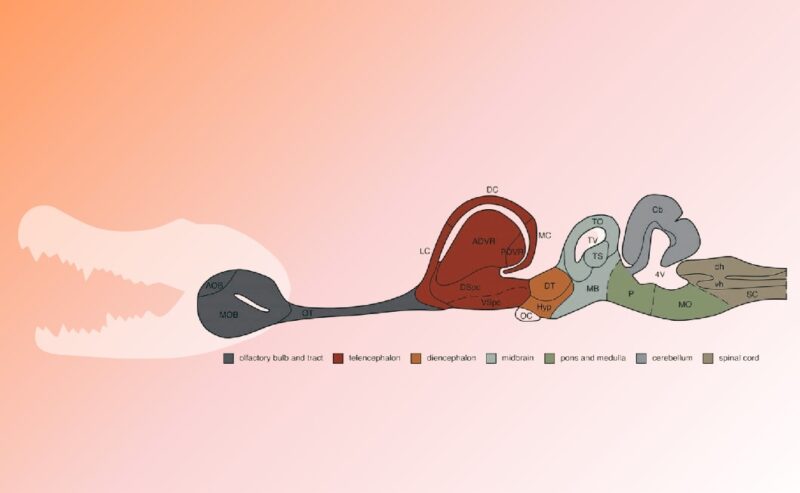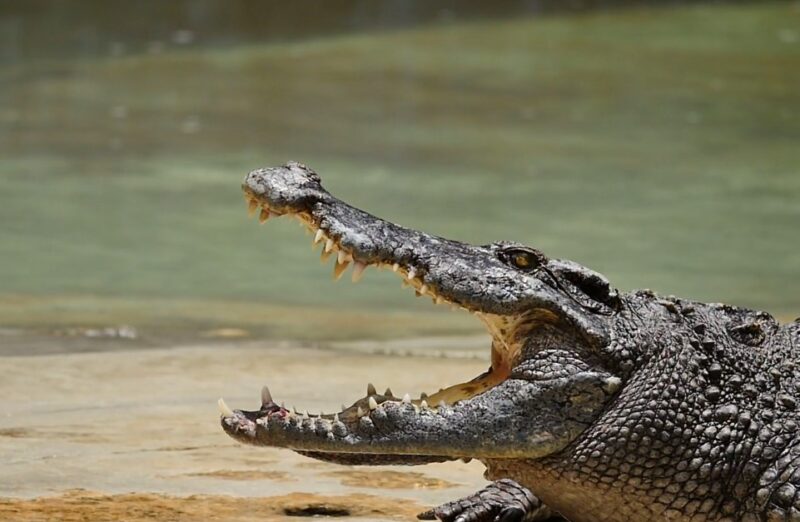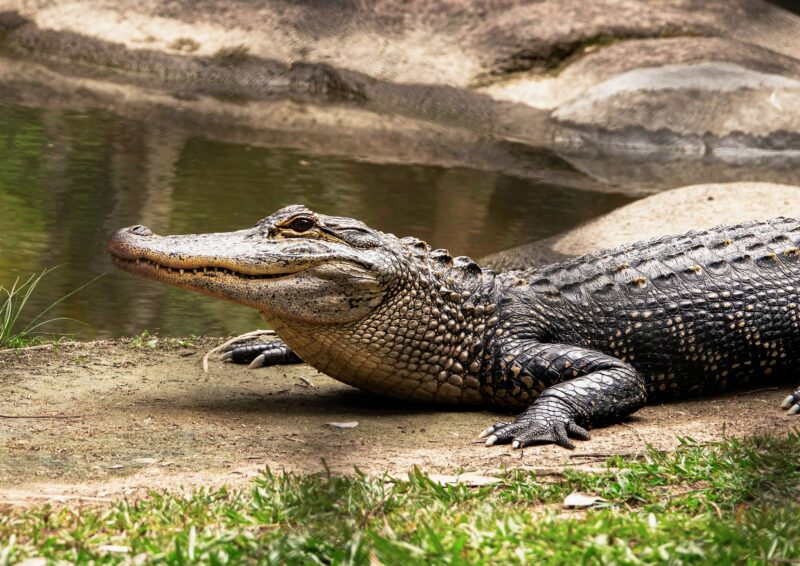Let’s be honest: Crocodiles are not the first animals that come to mind when we think about creatures that may feel pain or emotions. Owing to their ferocious reputation and ancient lineage, we often view these reptiles as “living fossils,” armored brutes devoid of sophisticated sensory perceptions.
But this view may be more rooted in myth than scientific understanding. So, can crocodiles feel pain? Hold onto your hats as we take a riveting deep dive into the subject.
The Crocodile—Not Just Skin-Deep

The Need for a Fresh Perspective
Crocodiles have long been feared and misunderstood. Whether they’re antagonists in fairy tales or monster movie staples, crocodiles rarely get positive press. This is a bit unfair. In order to understand them—and to answer our burning question—we need to move past the caricature and look at what science tells us.
Why This Question Matters
The question of whether crocodiles feel pain isn’t just academic. It has profound implications for wildlife management, conservation, and ethical treatment. Understanding the extent of their sensory perceptions can make us more responsible stewards of the Earth.
The Anatomy of Pain
Understanding whether crocodiles can feel pain requires an exploration of their anatomy, specifically focusing on the nervous system, pain receptors, and brain functionality.
Nervous System

The Basics
Similarities and Differences with Mammals
While their nervous system shares some similarities with those of mammals and birds, such as the presence of a spinal cord and peripheral nerves, there are also key differences. These differences don’t necessarily mean that crocodiles have a reduced ability to feel pain; they simply mean the process might be different.
Pain Receptors

Nociceptors: The Pain Detectors
Nociceptors are specialized sensory receptors that detect signals from injuries or other forms of damage. Research indicates that crocodiles possess nociceptors, implying that they can, in fact, perceive pain.
Complexity and Sensitivity
While it’s tempting to equate the presence of nociceptors with the ability to feel pain, it’s worth noting that the complexity and density of these receptors also play a significant role. Crocodiles may not have as many nociceptors as some mammals, but their presence indicates at least a basic capacity for pain perception.
Brain Functionality
What We Know
Crocodiles have relatively large, complex brains, particularly in areas associated with sensory perception. This further supports the notion that they can feel pain.
Comparisons to Other Reptiles
Scientific Studies: What Research Says

The best way to answer our question definitively is through empirical studies. These delve into behavioral, physiological, and comparative analyses.
Behavioral Studies
Observations in the Wild
Studies observing crocodile behavior, particularly when they are injured or under threat, indicate a range of responses—from aggressive defense mechanisms to retreat. These actions imply an ability to perceive discomfort or threat, suggesting a capacity for pain.
Laboratory Findings
Experimental conditions allow scientists to observe crocodile behavior under controlled settings. Such studies generally corroborate field observations, further solidifying the argument that crocodiles can feel pain.
Physiological Responses
Measuring Pain
Biological markers such as stress hormones can indicate the level of discomfort an animal is experiencing. Studies on crocodiles show increased levels of such markers when they are in distress.
Pain Alleviation
When pain relief medications are administered to crocodiles, these markers decrease, suggesting that the medication is effective, which would only be the case if crocodiles can feel pain.
Comparative Analysis
Across the Animal Kingdom
When the data from studies on crocodiles is compared to similar data for other animals known to feel pain, the results are often comparable. This strengthens the argument for crocodile pain perception.
Reptiles vs Mammals
Why It Matters: Ethical and Conservation Implications

Towards Ethical Practices
If we accept that crocodiles can feel pain, it necessitates a review of current practices in wildlife management, hunting, and captivity. Ethical considerations would advocate for methods that minimize distress.
Conservation Concerns
Acknowledging that crocodiles have the capacity to suffer can elevate the importance of conservation efforts. The more we understand their sensory experiences, the more we realize the necessity of preserving their natural habitats.
Policy Changes
Governments and conservation bodies may be urged to update regulations on how crocodiles are treated in various contexts, such as in farms or in the wild, to ensure their welfare.
FAQs
Final Words
The question of whether crocodiles can feel pain leads us down a fascinating path of scientific discovery. Not only do we gain insights into the lives of these incredible creatures, but we also find ourselves confronted with ethical considerations that compel us to be more compassionate beings.
As we’ve seen, the anatomy, scientific studies, and ethical implications all point toward the same conclusion: they are capable of feeling pain, even if it may not be in the exact way that we understand it.
Challenging our perceptions opens up new avenues for research, conservation, and, ultimately, a more humane world. Let’s move beyond the stereotypes and appreciate crocodiles for what they are: complex, intriguing animals worthy of our understanding and respect.








